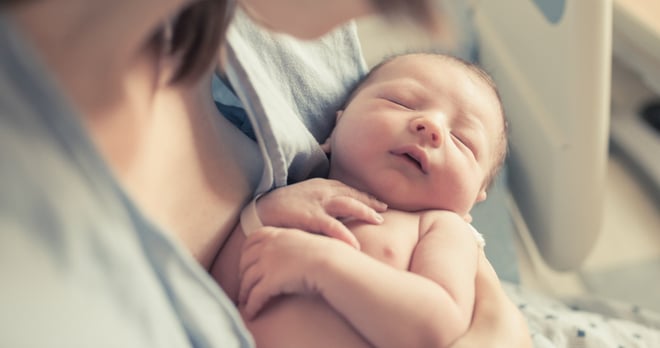‘Safe maternal and newborn care’ – what is actually happening to improve NHS maternity services in the UK?

There seems to have been no end to the tragic stories emerging over 2020-21 about appalling standards of maternity care in some NHS Trusts, leading to serious adverse outcomes for many women and their children, and at worst many tragic deaths.
Naturally there have not only concerns raised by the public over poor standards of care and clinical governance at units ‘outed’ in the press, but also by key stakeholders such as the House of Commons Health and Social Care Committee investigation panel, The Health Safety Investigation Branch (HSIB) reports, the Ockenden report and charity groups such as AvMA (Action against Medical Accidents) and Baby Lifeline.
Quite often the feeling amongst those involved in patient safety issues remains that we are simply circling around the issue, debating the causes of systemic and individual failures, all the while failing to get to the nub of the problem and implementing (or even creating) real, practical, fully funded solutions.
In response to a commons committee report, Jeremy Hunt, who chaired the Health and Social Care Committee commented in July 2021 that a “culture of blame” was preventing staff admitting mistakes and lessons being learnt. He commented that “improvements in maternity safety are still not happening quickly enough.”
Surely in a modern, sophisticated healthcare system such stories of harm should simply not be there to report?
So what is currently happening to improve maternity and new born care in the UK? Some examples include:
1) The Charity Group B Strep Support continue to strenuously campaign for fully-funded gold-standard ECM testing as part of routine maternity care in pregnancy, to test for GBS presence in expectant mothers. Whilst this campaign continues they seek to raise awareness of GBS amongst healthcare professionals, particularly midwives. A leading study is currently underway to seek to establish the outcomes of routine GBS testing in pregnancy; however this is already running into rough waters due to a lack of Trusts with the necessary equipment able to participate.
2) A National Maternity and Neonatal Safety Improvement Programme was launched in 2019 and was led by the National Patient Safety Team and covers all maternity and neonatal services across England. The programme aimed to reduce unwarranted variation and provide a high quality of healthcare experience for all women and babies while supporting frontline staff to create conditions for continuous improvement, a safety culture and a national learning system. This excellent programme was halted due to the COVID-19 response and subsequent issues with funding. It is thought this initiative will continue, but details of how and when are not yet forthcoming.
3) The Maternity Transformation Programme – Since the publication of the Better Births report in 2016, and the publication of Morecambe Bay Investigation report in 2015, the NHS partnered with other NHS bodies to develop a programme to implement the vision for safer and more personalised care across England. They focus on halving the rate of stillbirths, neonatal mortality, maternal mortality and brain injury by 2025. A review of their progress report after four years can be found here. Notwithstanding this excellent programme we have still seen shocking stories emerge from some NHS Trusts such as in Nottingham, Shrewsbury &Telford, Morecambe Bay and East Kent; many of these incidents of harm are historical, but many are not.
The THIS.Institute (The Healthcare Improvement Studies Institute) has combined with the Royal College of Midwives and The Royal College of Obstetricians & Gynaecologists to form the “Avoiding Brain Injury in Childbirth (ABC)" collaborative. They are inviting maternity staff, women and birth partners from across the country to contribute to the new programme on monitoring and responding to babies’ wellbeing during labour. When there are concerns during labour having the right training, tools and support are vital to securing high quality of care to mothers and their unborn child. A vital element of this programme is trying to ensure that women and their birth partners are actively and properly listened to and informed decision making is achieved.
In an excellent article, published on World Patienty Safety Day last year, by the NMC (Nursing and Midwifery Council), the Deputy Chief Midwifery Officer for England Sascha Munro-Wells commented in line with the ABC programme above that:
“…the theme of enabling and advocating for the views, preferences and decisions of women, partners and their families run so strongly through the standards. As midwives we need to ensure women and families have all the information they need to make fully-informed decisions.”
She went on to advise:
“Leadership and good governance are essential to safe midwifery care. The top four most important factors in ensuring safe care are:
-
The right leadership at all times
-
A positive culture that focuses on improving safety
-
Maternity service committed to continuing to learn and improve
-
What a mistake is made, everyone learns from it.”
I strongly feel we need a properly funded single national body to oversee and implement patient safety standards in maternity care. Such a body could then properly enforce and collate all the information required, on the basis of properly coded material, to make informed decisions on guidance and governance. Voluntary contributions from Trusts on an ad hoc basis to multiple different bodies will not cut the mustard in terms of raising safety standards to the required level across the board.